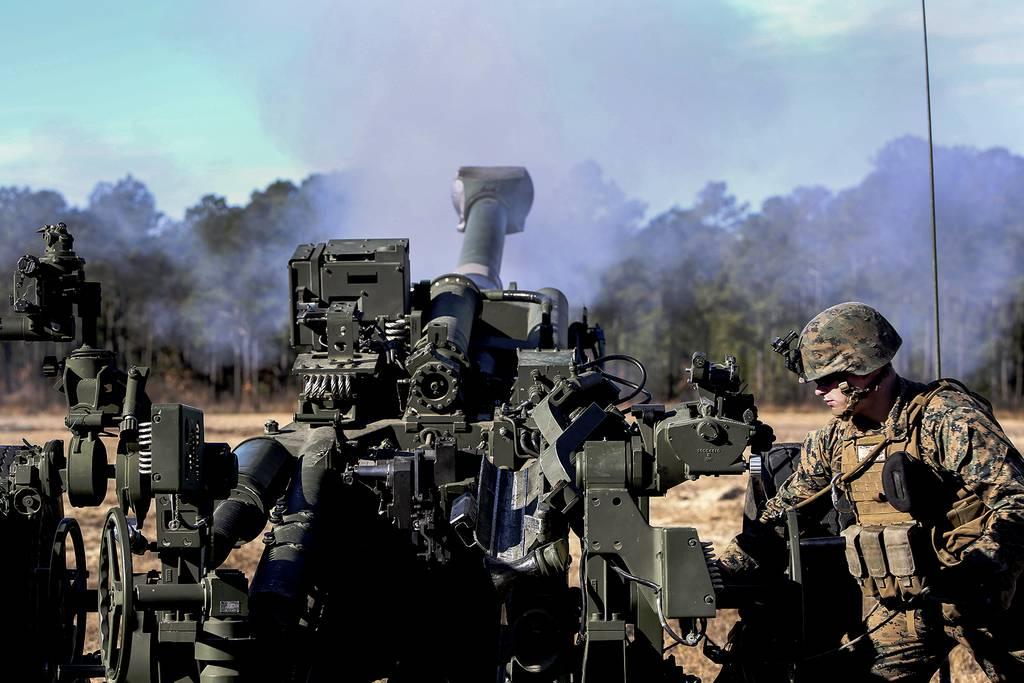
On Feb. 15, India Battery, 1st Battalion, 10th Marines, took aim at small inflatable naval targets known as “killer tomatoes,” that were arranged just offshore Camp Lejeune, North Carolina, 1st Lt. Sydney Murkins, a 2nd Marine Division spokeswoman, told Marine Corps Times in an email.
The Marine Corps is quickly reducing its number of traditional tube artillery, like the M777, in favor of more missile artillery systems, which will be able to cover a large swath of ocean with small weapons capable of sinking or heavily damaging large enemy ships.
The North Carolina exercise was a step toward proving the M777′s worth in the future small, dispersed littoral fight the Corps is prepping for.
Leaning on some creativity, the battery used drones to spot the targets floating out at sea.
“They’re going to be basically flying out and seeking targets out there on the coast,” Cpl. Henri Boyd, an 0811 with India Battery, said in a video released by the 2nd Marine Division.
The operation gave a glimpse into the future role of Marine Corps artillery, Capt. Tim Olson, India Battery’s commander said in a written statement.
“Our Marines excel at finding creative ways to make current technology do what was once thought impossible,” Olson said. “This exercise required leaders at the platoon and section level to solve future problems with the current equipment and procedures available to them today.”
As part of the Corps’ new littoral strategy, the Marines will focus more on supporting the movement of U.S. Navy vessels while bottling up or sinking the enemy’s ships.
Though the M777 has limited range and firepower compared to the Navy-Marine expeditionary ship interdiction system, or NMESIS, which throws a naval strike missile on the back of an autonomously operated joint light tactical vehicle, Lt. Col. William Soucie, commander of 1st Battalion, 10th Marines, said, “We support maneuver on land always, as well as maneuver at sea.”
Though this exercise was the first time M777s were used by the division to fire on naval targets it will not be the last.
The division, “is currently in the planning stages and anticipates the next exercise of this type will be conducted within the next year,” Murkins told Marine Corps Times.